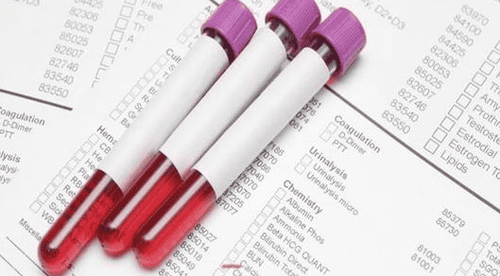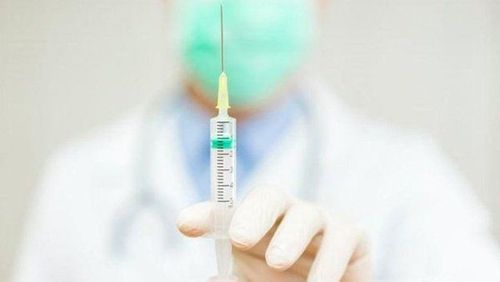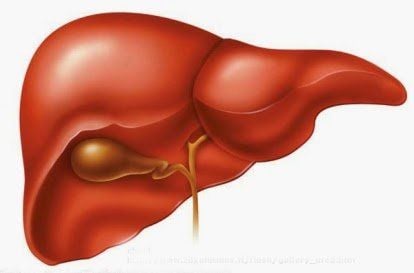This is an automatically translated article.
The article is professionally consulted by Master, Doctor Nguyen Thai Binh - Gastroenterologist - Department of General Surgery - Vinmec Ha Long International General Hospital.People with severe liver disease have a high risk of death when undergoing liver surgery. Preoperative evaluation will help physicians consider the effect of anesthesia and surgical methods on liver function after surgery in patients with pre-existing liver disease to make an appropriate decision.
1. Effects of anesthesia and surgery on liver function
Patients with liver disease are at risk of impaired liver function after anesthesia and surgery. Specifically:
General anesthetics can destroy liver function by reducing blood flow to the liver during surgery, leading to ischemia; Low blood pressure, bleeding, and hypoxia during surgery can also cause liver damage; Surgery for people with severe liver disease increases the risk of serious complications such as bleeding, infection, brain disease, kidney failure, or even death. Therefore, surgery should be avoided in patients with severe liver dysfunction.

Tránh phẫu thuật khi bệnh nhân bị rối loạn chức năng gan nặng
2. Preoperative evaluation for patients with chronic liver disease
Preoperative evaluation of patients with liver disease should consider the extent of liver dysfunction and effects on other organ systems. The evaluation process includes:
2.1 History taking and physical examination People with early liver disease may be asymptomatic or present with vague symptoms such as fatigue, weight loss, gastrointestinal disturbances, ... The clinical examination should be done carefully to detect signs such as hepatosplenomegaly, peripheral edema, red spider nodules, ascites, testicular atrophy, gynecomastia, pleural effusion, degree of encephalopathy,... In addition, the doctor should carefully ask the patient about the history of alcohol consumption and exposure to toxic chemicals,...
2.2 Subclinical examination Formulation testing blood
Perform a complete blood count to help your doctor detect anemia, thrombocytopenia, or an elevated white blood cell count if an infection is present. Blood tests are used to:
Check liver function: Prothrombin time: Give abnormal results if the synthesis of clotting factors II, VII, IX and X is impaired; The liver's synthesis of these factors depends on vitamin K; The half-life of these elements is usually less than 24 hours. This is the most sensitive indicator of changes in liver function; Albumin: Albumin is only synthesized in the liver and has a half-life of 21 days. Low serum albumin results may reflect liver dysfunction, malnutrition, kidney failure, malabsorption or the last months of pregnancy;

Xét nghiệm để kiểm tra chức năng của gan
Check liver cell damage: Alanine Aminotransferase (ALT) liver enzyme is present in the liver, which is typical for liver dysfunction; Aspartate Aminotransferase (AST) is present in organs such as liver, skeletal muscle, heart, and kidney. These tests are used to detect liver cell damage. Two tests were performed including: AST/ALT ratio: Results >4 are Wilson's disease, results >2 are alcoholic liver damage, and results <1 are non-alcoholic and non-alcoholic hepatitis Cirrhosis; Liver enzymes were also increased in cases of cholangitis, choledocholithiasis, and ischemic hepatitis (<10,000 IU/L). Occasionally there is hepatitis but no elevation of liver enzymes; Check for biliary obstruction: Bilirubin is increased due to hemolysis, hepatitis, cirrhosis, biliary stricture, effects of drug use,... Symptoms of jaundice are obvious when total bilirubin >3mg/dl. Hyperbilirubinemia associated with increased urobilirubinuria reflects hepatocellular dysfunction, intrahepatic cholestasis, and extrahepatic biliary obstruction. Unconjugated hyperbilirubinemia is seen in hemolysis or congenital malformations of bilirubin conjugation; Blood alkaline phosphatase (ALP) is produced by the liver, small intestine, kidneys, and bones. ALP is slightly increased when liver cell damage or cancer metastasizes, ALP is higher when there is intrahepatic cholestasis or biliary obstruction. In addition, increased ALP is also seen in pregnant women, people with bone disease, etc., so it is necessary to test more Gama glutamine (GGT) to exclude the source of ALP increase outside the liver. Tests to evaluate kidney function
Tests to evaluate kidney function, abnormalities in blood potassium, hyponatremia,... should be performed before surgery for liver disease. This is because severe hyponatremia associated with advanced liver disease can cause impaired consciousness. Rapid correction of hyponatremia should be avoided but should be done gradually, preferably at <10 mmol/l over 24 hours.

Xét nghiệm đánh giá chức năng của thận thông qua chỉ số natri máu
Other necessary tests
Cardiovascular examination: Before liver surgery, the patient's heart should be examined, including ECG and echocardiogram if the patient has risk factors for ventricular dysfunction. left, heart valve damage, cardiomyopathy or pulmonary vascular disease. If the patient has signs of coronary artery disease, it is necessary to do stress electrocardiography, evaluate left ventricular function or perform both methods at the same time; Lung examination: Chest X-ray or chest ultrasound to diagnose pleural effusion and drainage of pleural fluid should be performed prior to liver surgery. Simultaneously, pulmonary function testing should be performed to determine whether the patient has obstructive or spastic lung disease. Preoperative assessment before liver surgery is necessary to help doctors understand the patient's health status, make appropriate adjustments and changes, thereby making accurate treatment decisions and improving muscle tone. chance of successful treatment, reducing the risk of complications for the patient.














